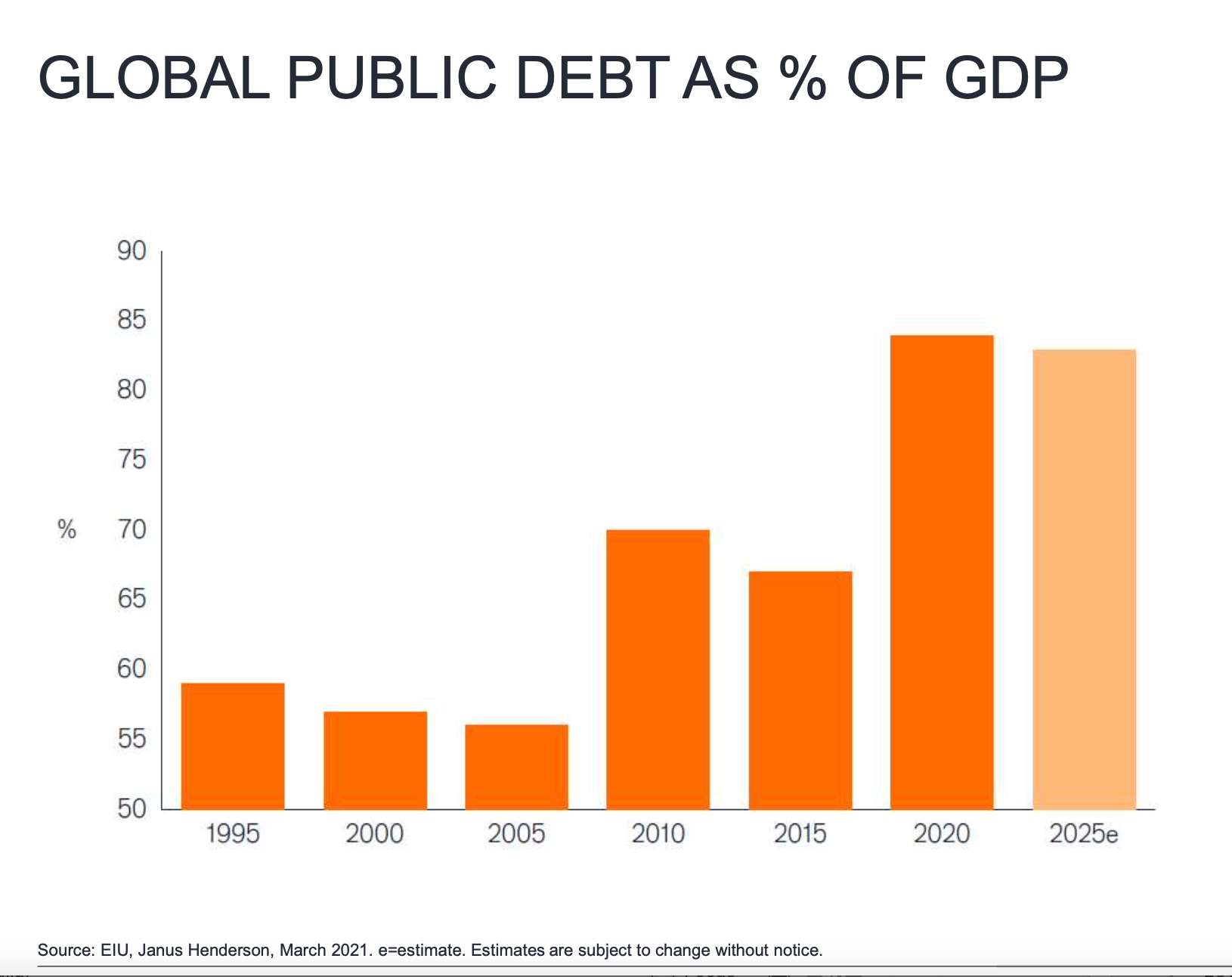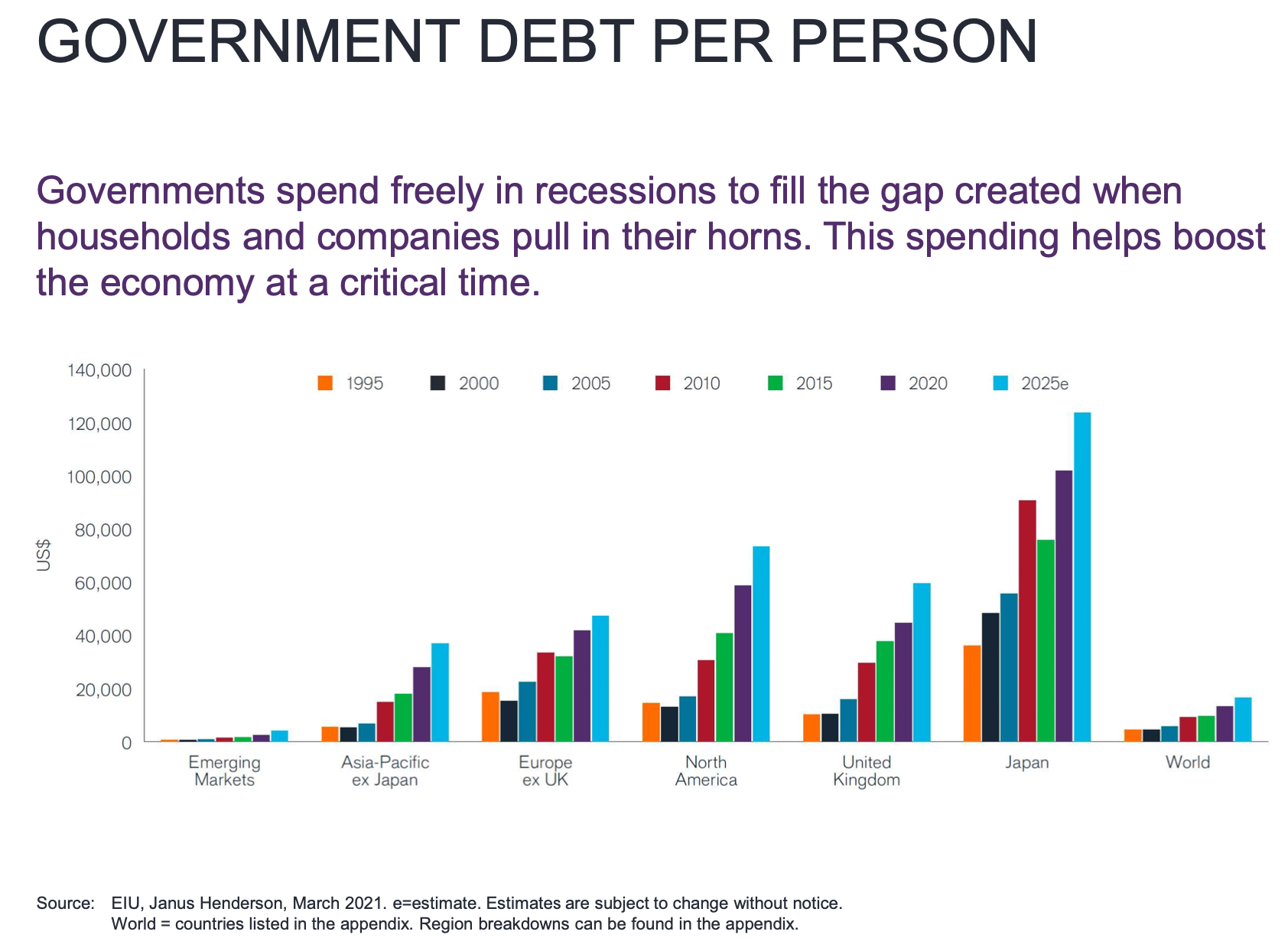Aussie growth outlook as good as it’s going to get
Credit investors have good reason to be optimistic about the global recovery trajectory over the next few years, but mainly in developed markets including Australia, says Janus Henderson's head of Australian fixed interest, Jay Sivapalan.
On the back of a newly-released report into government debt levels around the world, Sivapalan surveyed the global scene during a webinar on Monday. “We call it the ‘red cordial moment’ for Australia, it’s probably as good as we’re going to see it, from a growth perspective,” he said.
THE KEY TAKEAWAYS
- 3 key factors distinguish developed and emerging markets
- The threat of sovereign default risk is understated
- But Australia is having a "red cordial moment" as is the US and some other developed economies
While mindful that we’re coming off a period of extremely low growth in the pandemic-marred 2020, Sivapalan and his team are bullish on the outlook for global growth.
He anticipates around four years of above-average growth for developed markets, with “very strong growth this year” in Australia, moderating to strong next year and returning to average growth levels from 2024.
The outlook is less rosy in emerging markets, “who may still be dealing with the pandemic way into next year, where we might not see good growth until between 2023 and 2025.”

“As bond yields normalise, and there’s a strong incentive for them to normalise in an orderly fashion and not too quickly – it makes it quite challenging for bond investors against what should be good growth and good returns from risk assets like shares, property and infrastructure,” said Sivapalan.
“There’s a tipping point there, where inflation is a little bit too high and central banks need to intervene, which may not be good for all asset classes.”
In this environment, he highlights the importance of keeping a close eye on the level of interest rate risk in portfolios. “Because there will be more instances of either negative returns or volatility in bond markets as we normalise.”
He points to three key attributes that differentiate countries’ ability to manage sovereign debt risk:
- An ability to borrow money on the international market
- Control over the cost of debt
- A diversity of funding sources.

“Post-covid, there will be pockets of countries around the world that will just simply default. We saw that through Greece and indeed Argentina and a few other countries in recent years,” Sivapalan said.
“One of the aspects that is really understated today is default risk and particularly country default risk.”
He said there are “plenty of countries in the emerging market regions that don’t meet those three conditions.” In many cases, their problems pre-date the onset of the COVID pandemic but have been worsened since 2020.
“Right here and now, Brazil’s having a much tougher time dealing with COVID than China and some of the other Asian countries,” Sivapalan said.
Without predicting a debt default from Brazil he noted that “pressure is building” given the country already had high levels of debt and lacked high levels of trust in its political system.
Zooming back out to the global picture, Sivapalan expects central banks over the next decade will focus increasingly on a shift to financial stability.
“When you’ve got low levels of debt, the focus tends to be around getting either more debt or making better use of that debt. But as you get more debt, countries start to become acutely aware of the importance of high levels of debt, and financial stability becomes a lot more critical.
“One of the things we’ll see in the years ahead is that central banks’ involvement with debt and the risk-free rate is not going to go away.”
Not an existing Livewire subscriber?
If you're not an existing Livewire subscriber you can sign up to get free access to investment ideas and strategies from Australia's leading investors.
And you can follow my profile to stay up to date with other wires as they're published – don't forget to give them a like.
3 topics
3 contributors mentioned

